Two people from Busto Arsizio in the Moroccan desert: “We started a family here.”
They are 63 and 53, and came to Tazentout in 1998, in search of a new life. "We go back to Busto for our holidays, but we wanted a different life, one that, for us, was better"
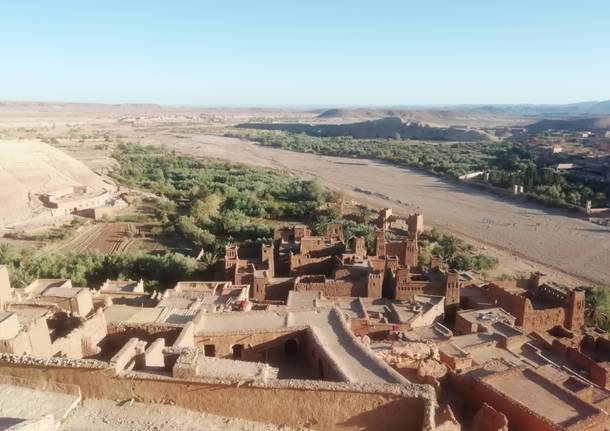
When I was a child, to make me understand how accustomed the people of Busto Arsizio were to travelling the world, my grandfather would tell me a little story, which might be funny, but since he was one of the first people to travel to Africa selling fabrics, I still find it hard to think of it as a joke. It went more or less like this: “When the first explorer arrived at the North Pole, he planted his country’s flag, to claim the land. Shortly afterwards, he noticed, a little further on, there was an igloo, with a smoking chimney. When he knocked on the door, there were two people from Busto Arsizio, eating polenta and bruscitt.”
There are plenty of historical examples, starting with the pioneer Enrico dell’Acqua, and they confirm that the “bustocchi” and “bustesi” (people from Busto Arsizio) are like parsley: you can find them everywhere, even in the middle of the desert. Yes, because if you happen to fly to Marrakech and then go round the hairpin bends of the Atlas mountains to get to Ouarzazate, you might meet Andrea and Anna (the names are invented because they care about their privacy, ed.), who have been living in the city, the “gateway to the desert” in southern Morocco, for twenty years.
He is 63, and she is 53, both converted to Islam, making a life choice that for many people may seem absurd or anti-historical, but for them it was the culmination of a journey in search of a place for themselves, quiet, where they could live peacefully.
The story began when Andrea, who was tired of being an insurance salesman, began to travel far and wide throughout Morocco, until 1998, when he arrived in the village of Tazentout, where, after a number of ups and downs, he bought an old riad, the home in which the adventure and the couple’s two children, now 19 and 15 years old, were born.
“The early days in the village were difficult,” said Anna. “We knew nothing of the language or the culture, but we’d had a lot of travel experiences and with the passe-partout of the religion, we were welcomed without any problems. We’d converted to Islam in Italy, changing our diet after some periods that weren’t exactly ‘stable’. Yoga also played an important part. Andrea has always read a lot, he introduced me to a world in which I found myself. We renovated the riad, raised our children like those of the other families in the village, and returned to Italy when the heat became unbearable. In 2006, when it was time for Ismaele to start school, we sold a garage in Busto, in Via Candiani, bought a house here in Ouarzazate, and sent him to the state school, which does a great job here, including social work, since the average age in Morocco is about 25 years. Ten sections, with forty students each, but the quality of the teaching is good, not to mention that, from an early age, the children were followed by a tutor, who is a very important figure in the Islam. Now, the oldest is studying economics in Agadir, on the coast, where we also hope to move, in a few years’ time, when our second child finishes high school. We only go back to Busto during the interval between one school year and the next, strictly by car or camper.”
What was it that led them to take this path? Anna answered by focusing on their search for a higher quality of life, something they felt they were excluded from in Lombardy, by the environment itself. “For Andrea, a great motivation was the fact that, in Busto, he couldn’t see an interesting future for himself, he suffered from the fact that things didn’t change, everyone became what their parents said they should become. We didn’t like this, we wanted a faraway and quiet place, where we could raise children, which, in Italy, we probably wouldn’t have had. We started from the bottom, putting ourselves to the test and taking risks, because perhaps we needed to create our own world, with the effort of rural life and of learning to interact with “ignorant” people, who, given the poverty, have no qualms about deceiving you for personal gain. For example, the riad in the village cost us 10 million lire at the time, which was probably more than it was actually worth, but we made it work for us and I have lovely memories of the time spent there, the colours, the sunset on the snowy Atlas mountains; things you can’t buy.
Andrea was a little more reserved, but when he opened his mouth, you felt you could speak to him about everything. He accompanied us to Zagora, to the great sea of sand and stones of the Sahara, never losing his Busto manner. When we stopped in Agdz, for example, he looked into the eyes of a Berber and saw something familiar; when he asked, he discovered that the man was the son of a friend of his, with whom he’d shared a tent for one night many years before in the desert. He explained to us the equilibrium of such a complicated ecosystem, of its cycles; “When it rains here (during our stay, we were also struck by the rain that they hadn’t seen for who knows how many years), the national GDP rises by 1-2 points, because the palm groves that follow the River Draa yield more.”
As we were leaving, Andrea and Anna said some unexpected words to us. “We expect you here whenever you want,” said Anna; “it’s been a great pleasure to see you here. The threads can go a long way, but they can’t break. At worst, we’ll meet in Piazza Santa Maria, for a coffee.”
What should we say? They paid for our dinners, took us around the desert, and taught so much about the culture of a harsh but simply breath-taking land. “Their world”, which, for everyone from Busto who reads this story, from now on, will feel like home.
TAG ARTICOLO
La community di VareseNews
Loro ne fanno già parte
Ultimi commenti
Paolo Cottini su Colle di Biumo, il 5 gennaio la conferenza di VAS a Varese per decidere il futuro dell'area
angelo_spiteri su Il Comitato varesino per la Palestina torna in piazza: "Non ci fermiamo nemmeno a Natale"
axelzzz85 su I sindacati dei frontalieri contro il decreto sulla tassa della salute: “Andremo alla Consulta”
robertolonate su Il Natale che non si vede
robertolonate su Il Natale che non si vede
Alessandro Zanzi su A Varese Confcommercio chiede la sospensione dei lavori della ciclabile in viale Belforte, il Comune fissa un sopralluogo



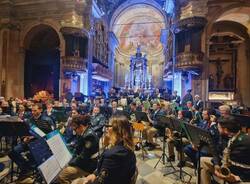

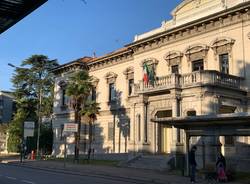
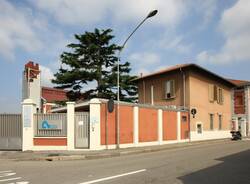

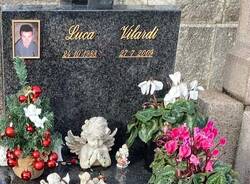
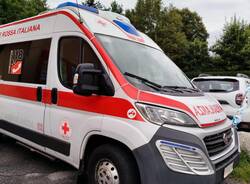

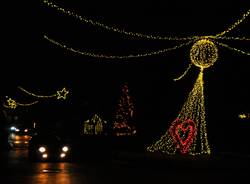

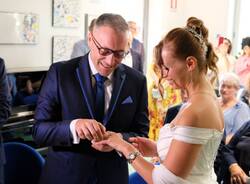
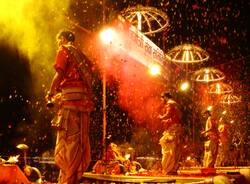





Accedi o registrati per commentare questo articolo.
L'email è richiesta ma non verrà mostrata ai visitatori. Il contenuto di questo commento esprime il pensiero dell'autore e non rappresenta la linea editoriale di VareseNews.it, che rimane autonoma e indipendente. I messaggi inclusi nei commenti non sono testi giornalistici, ma post inviati dai singoli lettori che possono essere automaticamente pubblicati senza filtro preventivo. I commenti che includano uno o più link a siti esterni verranno rimossi in automatico dal sistema.